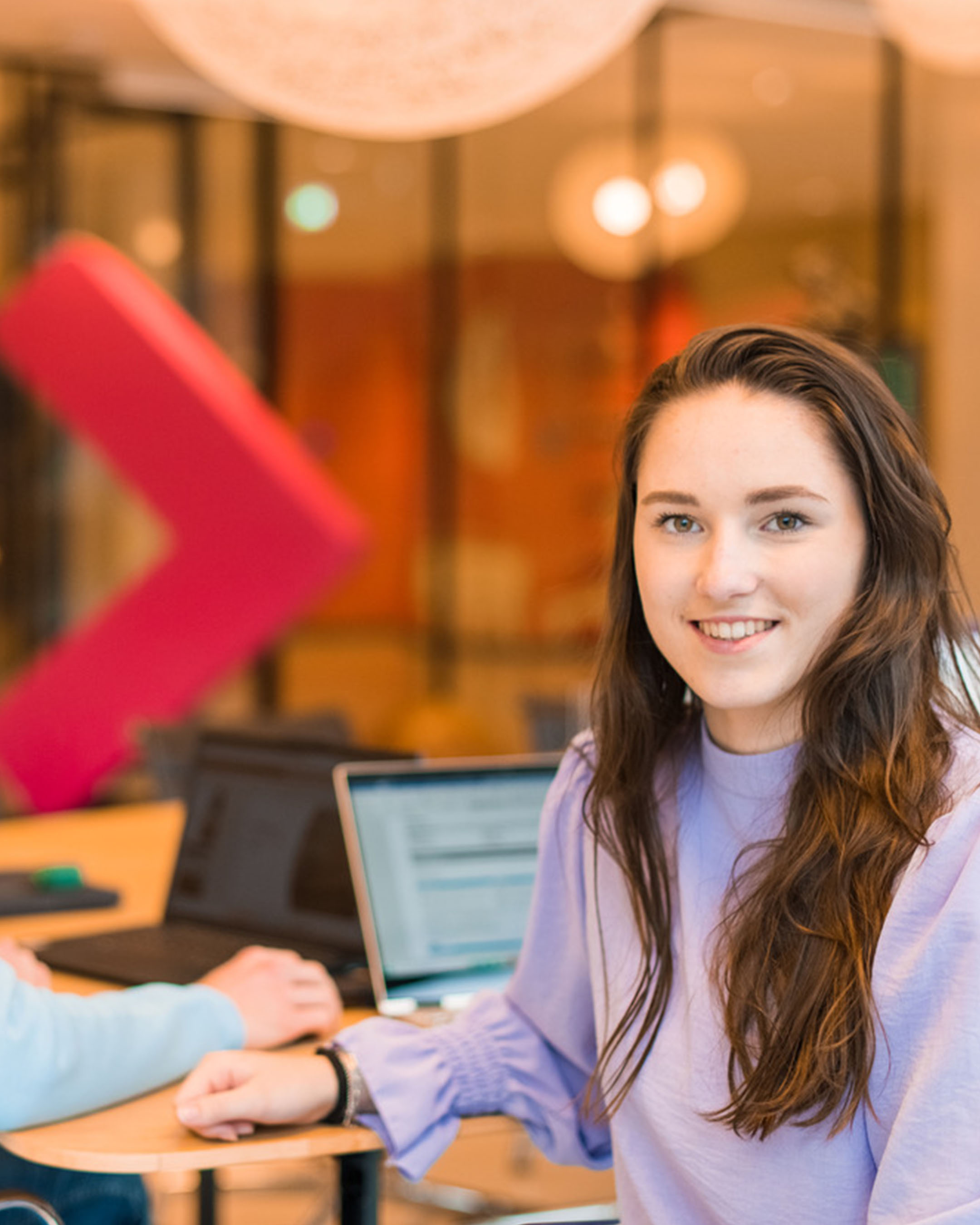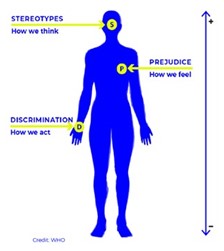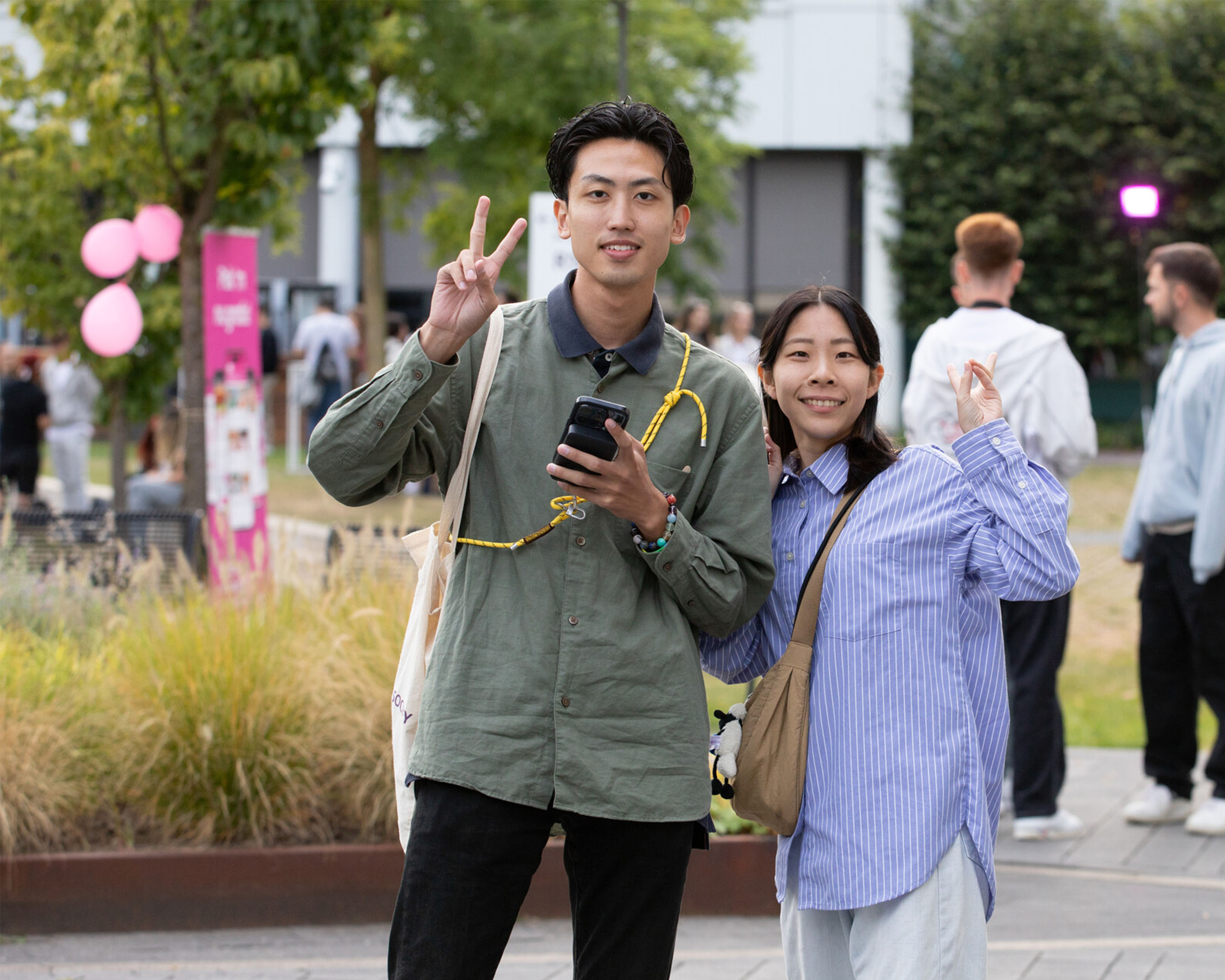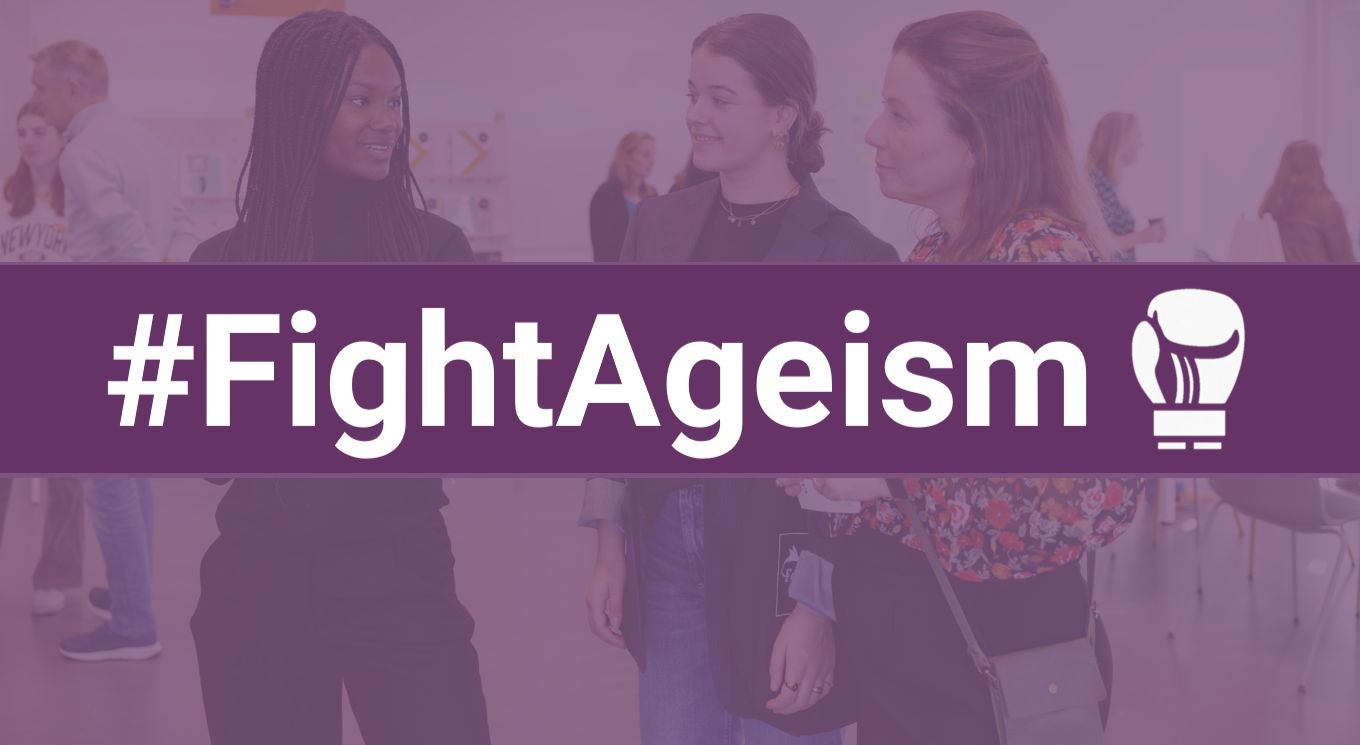
Join the #FightAgeism campaign
Fight Ageism, win € 100 and a publication!
Fontys' mission is to contribute to a sustainable, inclusive, and vibrant societyi. Ageism poses a challenge to this mission, and we are committed to addressing it!
Will you join us in tackling this societal issue? Contribute to the #FightAgeism campaign during teaching periods 1 and 2 (semester 1) of the 2024/2025 academic year.
The assignment
You are challenged to develop a service, product, or idea that helps reduce ageism against older people (alone or in a group). The format is open-ended; you can create a video, website, or report for instance. During the final event, the best ideas will be pitched and the winners announced. Prizes include a €100 gift voucher and a publication on Fontys News. To participate, you choose one of the following missions:
#FightAgeism in Society (mission 1)
Ageism occurs in various areas: media, healthcare, politics, news, communication, marketing, language, technology, engineering, real estate, interpersonal relationships, rights, and social expectations. If you want to combat ageism in any of these areas, choose the mission #FightAgeism in Society.
#FightAgeism at Work (mission 2)
Ageism affects hiring, employment, and retirement processes. Older applicants face challenges in getting hired, older employees have less access to training and development, and those facing ageism at work are more likely to retire earlyii. If you want to tackle ageism in the workplace, choose the mission #FightAgeism at Work.
#FightAgeism in Education (mission 3)
Education about older people and ageing is lacking, and when it is addressed, it is often done in a stereotypical way. This reinforces ageism and results in students being ill-prepared for the job market or even refrain from working in certain sectors. If you want to combat ageism in education, choose the mission #FightAgeism in Education.
How to get involved
Are you a Fontys student or employee? Join the campaign! Here are some key points:
- You can participate!
Join as a group or individually, as part of a course, internship, or workshop, regardless of year group or age, and no matter how much time you can commit. - Sign up.
The #FightAgeism campaign runs during teaching periods 1 and 2 of the 2024/2025 academic year (semester 1). Make sure you have registered before the end of week 4 of teaching period 2 at the very latest. For questions or to join, email Iris van Venrooij (i.vanvenrooij@fontys.nl). - Engage with principals.
Attend four to six online meetings where you can ask questions to Eric Schoenmakers and Iris van Venrooij who are commissioning this campaign. Meetings are optional. Dates and times will be communicated after registration. - Attend the #FightAgeism event on Tuesday, October 1st.
Join this substantive meeting on ageism. More details will follow. - Attend the closing event.
You are asked to pitch your results at the closing event. More information, including the submission deadline, will follow.
How do we assess the submissions?
When assessing, we consider the following criteria:
- The solution is substantiated.
- Your idea should plausibly contribute to reducing ageism against older people.
- The solution is feasible. The solution should be practical and implementable.
- The solution has impact. Greater or more significant impact is a plus.
- Involve stakeholders. Key stakeholders, including older people, should be closely involved in developing the solution. Specifically: the solution is sufficiently developed to be put into practice!
Win a publication and a gift voucher!
The best ideas will be published on Fontys News and receive a €100 gift voucher of your choice. We will award:
Three vouchers to students (best idea per mission).
One voucher to employees.
Tips for teachers and students to apply the campaign in education
Everyone can participate. Don't quickly dismiss #FightAgeism as "not fitting." Even if you have limited time to incorporate this into a program or course, it's possible and fun to participate.
Work with partners. Does your program work with external partners, and is cooperation with an outside organization needed? Then find one. We're also happy to brainstorm with you about this.
Expand the assignment. If the assignment doesn't align well with the learning outcomes of your program or course, adjust it so that it does.
Get in touch. Ask your questions; we are here to help and happy to brainstorm about how to make this assignment suitable for your program or course. Contact Iris van Venrooij (i.vanvenrooij@fontys.nl).
[i] Fontys. (z.d.). Fontys for society. Geraadpleegd op 16 mei 2024, van https://www.fontys.nl/Over-Fontys/Fontys-for-Society.htm
[ii] Chang, E. S., Kannoth, S., Levy, S., Wang, S. Y., Lee, J. E., & Levy, B. R. (2020). Global reach of ageism on older persons’ health: A systematic review. PLOS ONE, 15(1), e0220857. https://doi.org/10.1371/journal.pone.0220857
What is Ageism?
Ageism means age discrimination. It describes about our attitudes towards others and ourselves based on age (stereotypes), how we feel about it (prejudices), and how we behave (discrimination).
People of all ages can encounter ageism. For instance, when you're not taken seriously because of your age ("kids these days" or "OK, boomer"), when you're rejected for a job because of your age ("too young-looking," "Gen Z is lazy," "that older person probably can't handle technology"), or when you're restricted from doing something because of your age (voting, drinking, driving, getting discounts). Please watch to this video for more examples.

Ageism is most commonly directed towards older people. Globally, 50 percent of people hold stereotypes or prejudices about older people and/or discriminate against themiii. This has consequences: Ageism is linked to shorter life expectancy and poorer physical and mental health. It can lead to social isolation and loneliness, increased risk of experiencing violence, and financial insecurity and poverty. In short, ageism diminishes the quality of life for older peopleiii. Due to these far-reaching effects of ageism on older people, coupled with the aging of society, #FightAgeism focuses on ageism against older people.
Basics about aging and population aging
Hooray! We're all living longer! In 2018, the average life expectancy was estimated to be 81.8 years, and by 2040, it's expected to rise to 85.4 yearsiv. This increase in life expectancy has led to a growing population of older people, while the number of younger people is decreasing, resulting in an aging population. As of January 1, 2024, 20.5% of the Dutch population was 65 years or olderv. This percentage is expected to increase to 25.1% by 2040vi. We see a similar trend worldwide, with the percentage of people aged 60 and over expected to increase from 12% in 2015 to 22% in 2040vii.
[i] WHO. (2021). Global report on ageism. World Health Organization. Verkregen via https://www.who.int/publications/i/item/9789240016866
[ii] RIVM. (z.d.). Volksgezondheid Toekomst Verkenning 2024: Trendscenario: Sterfte en levensverwachting. Geraadpleegd op 16 mei 2024, van https://www.volksgezondheidtoekomstverkenning.nl/c-vtv/trendscenario-update-2020/sterfte-en-levensverwachting
[iii] CBS. (z.d.). Ouderen. Geraadpleegd op 16 mei 2024, van https://www.cbs.nl/nl-nl/visualisaties/dashboard-bevolking/leeftijd/ouderen
[iv] PBL/CBS. (2022). Regionale bevolkings- en huishoudensprognose 2022-2025: Steden en randgemeenten groeien verder: Vergrijzing. Geraadpleegd op 16 mei 2024, van https://longreads.cbs.nl/regionale-prognose-2022/vergrijzing/
[v] WHO. (2022). Ageing and health. Geraadpleegd op 16 mei 2024, van https://www.who.int/news-room/fact-sheets/detail/ageing-and-health
Contact details
The network is coordinated by Eric Schoenmakers and Iris van Venrooij.
Read on for more information about the network Age & Ageing (in Dutch).




